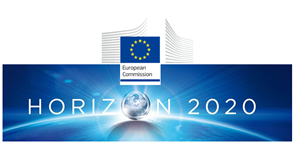
HORIZONT 2020
More information:
H2020 participant portal The Hungarian H2020 website Open calls for proposals
H2020 project proposals can be submitted directly through the European Commission’s Participant Portal. Submitted proposals are first pre-assessed (for legibility, printability, completeness) and then assessed against the formal requirements set out in the call by the Directorate-General for Research and Innovation of the European Commission or the Executive Agency responsible for the given funding programme.
Every formally compliant proposal is evaluated in terms of professional content by at least three independent external experts. They first evaluate proposals independently from each other, expressing their opinion in an Individual Evaluation Report (IER). This is followed by the so-called ‘consensus meeting’ where the experts evaluating the same proposal discuss their views and prepare the Consensus Report (CR). Individual evaluations take place almost always, while consensus meetings only occasionally remotely, using online channels. The third stage of the process is a panel meeting where panel members rank project proposals and prepare the Evaluation Summary Report (ESR). The final ranked list of proposals selected for funding is based on the summary of the evaluation reports.
H2020 expert evaluators
To become an expert evaluator, candidates have to register to the database of experts on the dedicated page of the Participant Portal by creating a detailed profile including professional competences. Experts are selected by the coordinators of the Commission or the competent Executive Agency based on the topic of the submitted proposals and the expert profiles. The key principles applied by experts during their work are independence, impartiality, objectivity, accuracy and consistency. All experts have to make a statement on conflicts of interest and confidentiality. The list of experts involved in the evaluation of project proposals is annually published by European Commission.
The involvement of experts in the evaluation of H2020 proposals has substantial benefits both for the individuals and for the organisation, as well as for the domestic researcher-reviewer community. By participating in the international work, experts gain an insight into the entire evaluation process and can learn what makes proposals really successful and what makes them fail. Later on, they can use this experience in creating their own or their institution’s project proposals. As another important advantage, experts participating in the evaluation work have the opportunity to build relationships with other experts in the given field of science or technology and with the staff of the European Commission or the Executive Agency.
The NRDI Office pays special attention to provide a forum for the exchange of practical insights at information and consultation events organised by H2020 National Contact Points to spread the experience of H2020 expert evaluators as broadly as possible.
Evaluation criteria in H2020 actions
1. Excellence
- clarity and pertinence of the objectives;
- soundness of the concept and credibility of the proposed approach.
Further criteria in Research and Innovation Actions (RIA) and Innovation Actions:
- extent that proposed work is ambitious, has innovation potential, and is beyond the state of the art;
- interdisciplinary approach, extent of involvement of stakeholders, gender considerations.
2. Impact
- the expected impacts listed in the work programme under the relevant topic.
Further criteria in Research and Innovation Actions (RIA) and Innovation Actions:
- enhancing innovation capacity and contribution to the creation of new markets;
- strengthening the competitiveness and growth of businesses;
- any other environmental and socially important impacts;
- effectiveness of the proposed measures to exploit and disseminate the project results (including proper management of intellectual property rights and research output);
- project communication respects the needs of different target groups.
3. Quality and efficiency of the implementation
- coherence and effectiveness of the work plan, including appropriateness of the allocation of tasks and resources;
- complementarity of the participants within the consortium (when relevant);
- appropriateness of the management structures and procedures, including risk and innovation management;
- participants actually take part in the project and have the necessary capacities.






